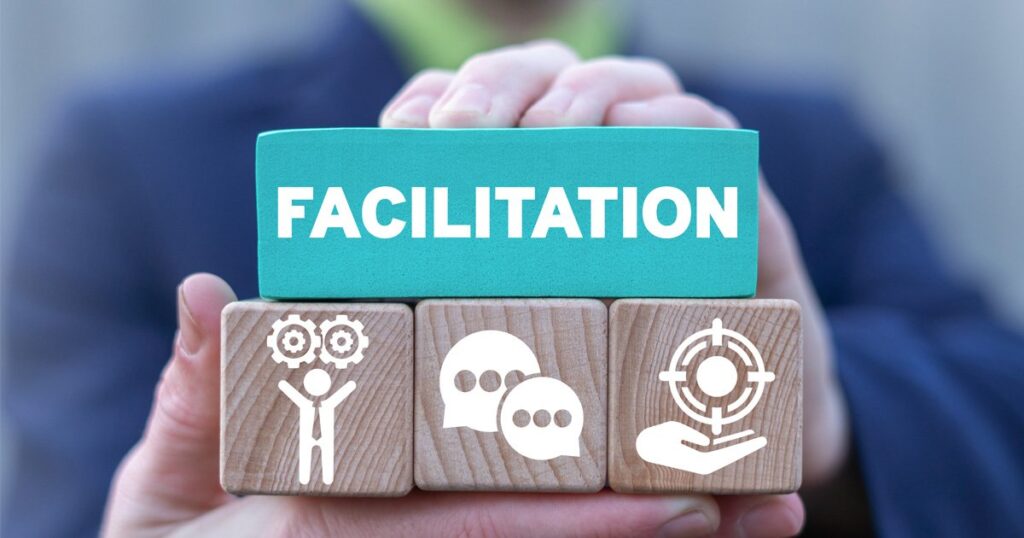Some Tips about Facilitation

Audience:
Get to know your audience by names, if possible
Provide leadership as participants at times want to be led(but one can also encourage leadership development of
the participants)
Be patient with participants in view of their questions, participation, and attitude. Where there are difficulties
affecting the rest of the group either by a participant or group, one may have talk to the participant or group. If in
doubt consult your team.
Draw out (the) quiet participants by positively engaging them in discussions as they may be overshadowed by the
more vocal ones. The aim is to encourage learning from many fronts.
Answer questions to the best of your ability; where one might be stuck, the co-facilitator can assist.
Gender, cultural and religious sensitivity is good; and all to be treated equally.
Facilitation:
Familiarize yourself with the overall subject matter and its sub units; remember the participants may think a facilitator is a “one stop expert” in subject. Let them know that you will also learn from them as learning is a two way
method.
Create a conducive training environment; introductory sessions are usually ice breakers
Co-facilitators require to work as a team; even if they may not like each other; any form of discord might discourage the participants. This means not contradicting each other, undermining the other’s facilitation skills, whether with participants or publicly, speaking ill about the other person’s life, profession, etc.
If possible, have quick energizers;
Keep time; organization is key; Make decisions fast given the facilitation period
Summarize the learning points at the end of each session.
Administration/IT:
If there are questions about any aspect of the training program, the facilitator should ask his/her training/technical/administration team ahead of time
Test out any new system ahead of time, if possible
Ensure adequate internet services before facilitation or have a backup plan or IT person nearby (internet
and general IT can be an issue in certain parts of the world)
Personal Disposition:
Keep your beliefs and politics to yourself
Ensure a smart dress code, not necessarily suits but clean presentable clothes
Avoid talking about your financial difficulties with the participants; e.g., “I can’t take on the session because I do not have air time. I have not been paid.”
Have a balanced disposition, e.g. funny, serious, and articulate, etc.
A Key Aim of Facilitation Is Empowerment
Caroline Wanjiku




